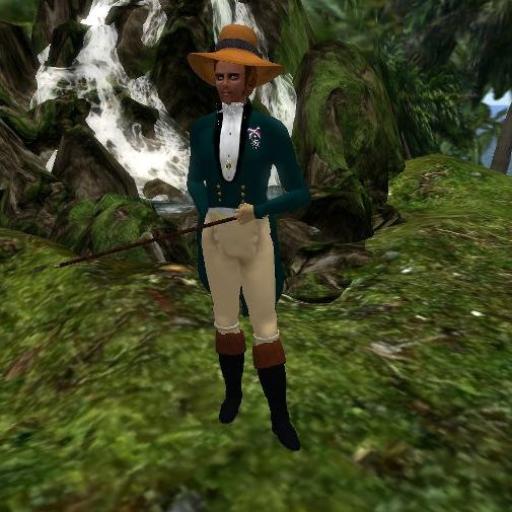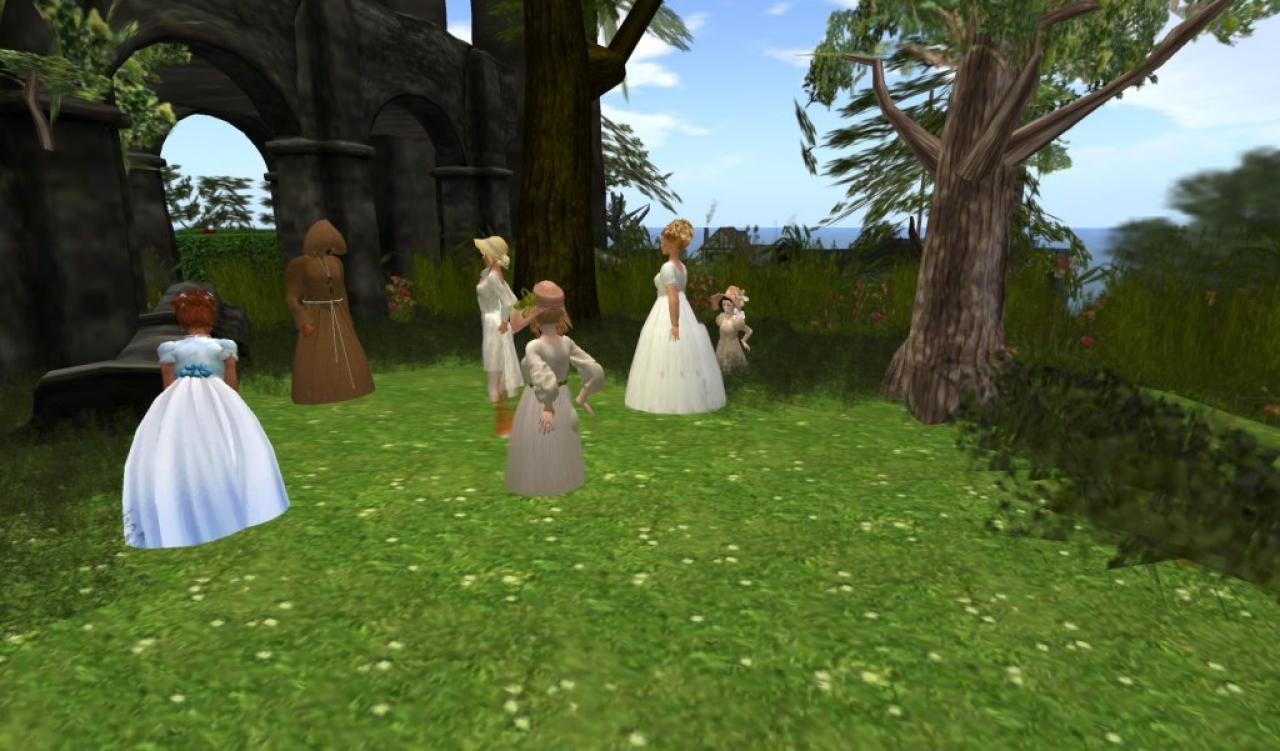Whitsunday Regency Picnic. Visting...
At one time in England, during the Georgian era, noblemen would have hermits living on their land, for instance in a folly, or a cave on the land. The hermit would be provided with food and water, and given a skull, a book and an hour-glass. Some of these "ornamental" hermits didn't talk to the servants, but simply repeated a phrase in Latin. Most grew beards and didn't cut their nails. Notable places with ornamental hermits included Painshill Estate and Hawkstone Park. Where among other attractions to go a see for visiting gust.
About the HERMIT
Why would a country estate house a hermit in its hills, and why should the picnickers seek him out and disturb his solitude?
It was a status symbol for the landed gentry to allow a hermit to live on their country estate, in a grotto or hut, and provide his meals. In return he prayed for them, dispensed wisdom when consulted, and conferred status.
In his novel "Snuff," Sir Terry Pratchett describes the role of the estate hermit as hereditary:
"Unbroken tradition of herming for nearly three hundred years, dispensing pious thinking and the knowledge that all paths lead but to the grave, and other somber considerations, to all those who seek us out..."
The hermit is typically robed in a rough habit like a monk's, and may carry a skull (perhaps as Pratchett suggests that of one of his ancestors) or a heavy tome (a book - possibly a bible). He is ancient and venerable, with a long beard which may have some twigs and bits of food entangled in it.
Whitsunday is a particularly auspicious occasion on which to seek out a hermit and receive wisdom, as it is the day upon which the Holy Spirit descended and dispensed "wytte" or wisdom, to the apostles.
So we will frolic, cavort, and be festive, but also take time to receive a bit of wisdom and give alms to the holy hermit.
About the HERMIT
Why would a country estate house a hermit in its hills, and why should the picnickers seek him out and disturb his solitude?
It was a status symbol for the landed gentry to allow a hermit to live on their country estate, in a grotto or hut, and provide his meals. In return he prayed for them, dispensed wisdom when consulted, and conferred status.
In his novel "Snuff," Sir Terry Pratchett describes the role of the estate hermit as hereditary:
"Unbroken tradition of herming for nearly three hundred years, dispensing pious thinking and the knowledge that all paths lead but to the grave, and other somber considerations, to all those who seek us out..."
The hermit is typically robed in a rough habit like a monk's, and may carry a skull (perhaps as Pratchett suggests that of one of his ancestors) or a heavy tome (a book - possibly a bible). He is ancient and venerable, with a long beard which may have some twigs and bits of food entangled in it.
Whitsunday is a particularly auspicious occasion on which to seek out a hermit and receive wisdom, as it is the day upon which the Holy Spirit descended and dispensed "wytte" or wisdom, to the apostles.
So we will frolic, cavort, and be festive, but also take time to receive a bit of wisdom and give alms to the holy hermit.



